Type of qualification
Level of study
An undergraduate qualification is usually the first one you study.
Our courses follow the New Zealand Qualification Framework (NZQF) levels.
Time to complete
Where you can study
International students
International students are not New Zealand citizens or residents.
Study a Bachelor of Accountancy – BAcc
Keen to become a professional accountant? This specialised degree will lead you to an accountancy career. You can become a member of one of the professional accounting organisations.
What will you learn?
The Bachelor of Accountancy will give you the skills needed to analyse accounting and business problems. You will gain a solid foundation in accounting and finance. You will also learn inter-personal and technical skills, knowledge and critical thinking skills. These are essential for success in today’s business environment.
Your study has a solid foundation of compulsory courses, but it also provides some flexibility to choose courses for yourself.
The BAcc degree will give you an understanding of the legal and regulatory environments. You'll learn to identify and evaluate ethical dilemmas and provide logical ways to resolve them. You’ll learn how best to communicate and use financial information to support business decisions.
You'll also learn the concepts and processes needed to protect and validate the integrity of accounting information.
Relevant study
Our lecturers are actively researching, bringing the most relevant developments in accounting theory and practice to your study. Massey is ranked third in Australasia and first in New Zealand for accounting research impact and productivity.
If you’d like to take accountancy as part of a broader business qualification, consider the Bachelor of Business (Accountancy).
Insights
- The 2020 Student Experience Survey results for this qualification found that 75% of students on this qualification were satisfied with the teaching they have received, 81% believed assessment tasks challenged students to learn, and 83% highlighted that the qualification has given them “confidence to learn independently”.
- The 2020 Graduate Destination Survey results for this qualification found that 82% of graduates are in employment and 50% have continued in further study. The most common job title for graduated students was “Accountant”. Respondents indicated that 60% were earning above the New Zealand median national salary.
- Between 2018 and 2021 the average number of students enrolled in the qualification was 735 (headcount). In the 2020 academic year, 73% of students in the first year continued their studies and across the whole qualification 81% of courses were successfully completed.
- The QS World University Ranking by Subject ranks Massey in the top 200 universities worldwide in this subject area.
A BAcc is a good fit if you:
- know you would like to be an accountant
- enjoy working in a team and meeting new people
- would like a career with a new challenge every day.
Entry requirements
Admission to Massey
All students must meet university entrance requirements to be admitted to the University.
Specific requirements
There are no specific entry requirements for this qualification, outside of university admission regulations.
English language requirements
To study this qualification you must meet Massey University's English language standards.
Prior learning, credit and exemptions
For information on prior learning, exemptions and transfer of credit or other questions:
- review the Recognition of Prior Learning regulations
- contact us through the Get advice button on this page.
English language skills
If you need help with your English language skills before you start university, see our English for Academic Purposes (EAP) courses.
Becoming a Chartered Accountant
Chartered Accountants Australia and New Zealand (CA ANZ) Requirements
If you complete a Bachelor of Accountancy degree with the required subjects included as electives (for details refer to the eligibility criteria to join CA ANZ as a provisional member). After completing three years of practical experience and the CA Programme you will become a Chartered Accountant (CA). Alternatively, after two years of practical experience and a professional competence programme you could become an Associate Chartered Accountant (ACA).
CPA Australia Requirements
If you complete your BAcc degree with the required subjects included as electives (for details refer to the eligibility criteria to join CPA Australia as an Associate). After completing the CPA programme and practical experience you will become a CPA (Certified Practicing Accountant).
Association of Chartered Certified Accountants (ACCA) Requirements
On completion of your BAcc degree with the required subjects included as electives (for details refer to the eligibility criteria for exemptions from nine ACCA modules). After completing the remaining five ACCA examinations, plus three years of practical experience and a professional ethics module, you will qualify as an ACCA member.
Chartered Institute of Management Accountants (CIMA) Requirements
If you complete your BAcc degree with the required subjects included as electives (for details refer to exemptions from seven CIMA courses – all five certificates, one operational, and one management). After completing the remaining CIMA syllabus you become a CGMA (Chartered Global Management Accountant).
Official regulations
To understand what you need to study and must complete to graduate read the official rules and regulations for this qualification.
You should read these together with all other relevant Statutes and Regulations of the University including the General Regulations for Undergraduate Degrees, Undergraduate Diplomas, Undergraduate Certificates, Graduate Diplomas and Graduate Certificates.
Returning students
For returning students, there may be changes to the majors and minors available and the courses you need to take. Go to the section called ‘Transitional Provisions’ in the Regulations to find out more.
In some cases the qualification or specialisation you enrolled in may no longer be taking new enrolments, so may not appear on these web pages. To find information on the regulations for these qualifications go to the Massey University Calendar.
Please contact us through the Get advice button on this page if you have any questions.
Structure of the Bachelor of Accountancy
If you study full-time, in your first year, you’ll take eight 15-credit courses, making a total of 120 credits.
If you wish to study over two semesters, you should aim for 60 credits per semester. You may be able to take some courses at summer school. Make sure you include courses that are prerequisites for the next level of courses you wish to study.
Typical pattern for the Bachelor of Accountancy
Core courses These courses are a compulsory part of your qualification.
Elective courses Follow your interests. Your qualification may have selection guidelines for elective courses.
| Year one |
|---|
| 110109 Introductory Financial Accounting |
| 115111 Communication Theory and Practice |
| 115112 Accounting for Business |
| 115113 Economics of Business |
| 115114 Finance Fundamentals |
| 115115 Management in Context |
| 115116 Introduction to Marketing |
| 161101 Statistics for Business OR 161111 Applied Statistics |
| Year two |
|---|
| 110209 Intermediate Financial Accounting |
| 110229 Management Accounting |
| 110249 Accounting Information Systems |
| 110279 Auditing |
| 110289 Taxation |
| 115211 Business Law |
| 125230 Business Finance |
| Elective |
| Year three |
|---|
| 110303 Integrative Accounting |
| 110309 Advanced Financial Accounting |
| 155203 Law of Business Organisations |
| 155210 Commercial Law |
| 110329 Advanced Management Accounting |
| 300-level course from compulsory list |
| 300-level course from compulsory list |
| 300-level course from compulsory list |
Courses are each worth 15 credits
Courses and specialisations
Key terms
- Courses
- Each qualification has its own specific set of courses. Some universities call these papers. You enrol in courses after you get accepted into Massey.
- Course code
- Each course is numbered using 6 digits. The fourth number shows the level of the course. For example, in course 219206, the fourth number is a 2, so it is a 200-level course (usually studied in the second year of full-time study).
- Credits
- Each course is worth a number of credits. You combine courses (credits) to meet the total number of credits needed for your qualification.
- Specialisations
- Some qualifications let you choose what subject you'd like to specialise in. Your major or endorsement is what you will take the majority of your courses in.
Credit summary
360 credits
- Compulsory courses from Schedule A – 285 credits
- Courses from Schedule B – 45 credits
- Numeracy course from Schedule C – 15 credits
- Elective from specified business subjects – 15 credits
Ensure that overall, you have:
- Not more than 135 credits at 100 level
- At least 90 credits at 300 level
Course planning key
- Prerequisites
- Courses that need to be completed before moving onto a course at the next level. For example, a lot of 200-level courses have 100-level prerequisite courses.
- Corequisites
- Courses that must be completed at the same time as another course are known as corequisite courses.
- Restrictions
- Some courses are restricted against each other because their content is similar. This means you can only choose one of the offered courses to study and credit to your qualification.
Schedule A: Core courses (Choose 285 credits from)
Course code: 110109 Introductory Financial Accounting 15 credits
An introduction to measurement concepts in accounting and to the preparation and presentation of financial statements and reports, including the compilation of primary financial data.
View full course detailsCourse code: 110209 Intermediate Financial Accounting 15 credits
A detailed study of financial reporting, with particular emphasis on corporate regulatory requirements, both professional and statutory.
View full course detailsCourse code: 110229 Management Accounting 15 credits
A study of cost accumulation and allocation processes used for internal routine reporting to managers for cost management and operational planning and control; internal non-routine reporting to managers for strategic and tactical decisions; inventory valuation and income determination for external reporting. Where appropriate, examples and applications in primary industries and the public sector will also be considered.
View full course detailsCourse code: 110249 Accounting Information Systems 15 credits
A study of systems for the measurement and reporting of information for internal and external decision-making, including the emerging technologies that lend support for this. The accountant’s role in the formulation, design, implementation and management of these systems, including risk management and controls will also be addressed.
View full course detailsCourse code: 110279 Auditing 15 credits
An introduction to the basic principles of auditing, including the function of audits and the concepts that govern audit processes and practices.
View full course detailsCourse code: 110289 Taxation 15 credits
An introduction to the basic principles of taxation, the elements of taxation and the concepts that govern tax practice. The course will also provide an awareness of the economic implications of taxation at both local and global levels.
View full course detailsCourse code: 110303 Integrative Accounting 15 credits
An integrated study of accounting sub-disciplines and other related disciplines to create an appreciation of how accounting operates in practice. Emphasis will also be placed on integration of expanded competencies with knowledge-based skills.
View full course detailsCourse code: 110309 Advanced Financial Accounting 15 credits
A study of advanced financial accounting topics and contemporary professional and conceptual issues relevant to financial reporting.
View full course detailsCourse code: 110329 Advanced Management Accounting 15 credits
A study of advanced topics and contemporary issues in management accounting in a range of industry settings, including strategic management and performance management.
View full course detailsCourse code: 115111 Communication Theory and Practice 15 credits
This course identifies key theories and strategies to enhance written, oral, visual, and interpersonal communication for different purposes and audiences. Students explore, discuss, critique, and practise communication for a business and global environment and recognise how world views, culture, and contexts shape communication.
View full course detailsCourse code: 115112 Accounting for Business 15 credits
An introduction to how accounting information is used for planning, monitoring and evaluating organisational performance.
View full course detailsCourse code: 115113 Economics for Business 15 credits
The course examines the nature of the contemporary economic environment in which businesses operate, and considers how economics can aid in business decision-making.
View full course detailsCourse code: 115114 Finance Fundamentals 15 credits
This course introduces analytical techniques for evaluating personal and business investment and financing decisions, including coverage of the context and environment in which these decisions are made.
View full course detailsCourse code: 115115 Management in Context 15 credits
This course provides students with a theoretical and practical understanding of management and organisations in the contemporary context.
View full course detailsCourse code: 115116 Introduction to Marketing 15 credits
The course provides an understanding of the core concepts and practices of marketing.
View full course detailsCourse code: 115211 Business Law 15 credits
The course will encompass an introduction to the key elements of the law within which business operates in New Zealand from a practical perspective.
View full course detailsCourse code: 125230 Business Finance 15 credits
The course provides students with a fundamental knowledge of financial theory and practice. In addition to valuation and capital budgeting, students will study working capital management, capital structure, the cost of capital, dividend policy and ethics in finance.
View full course detailsCourse code: 155203 Law of Business Organisations 15 credits
General principles of law relating to companies and partnerships.
View full course detailsCourse code: 155210 Commercial Law 15 credits
Legal obligations and responsibilities that may arise when conducting business activities.
View full course detailsSchedule B: Accountancy and Finance courses (Choose 45 credits from)
Course code: 110304 Data Analytics for Accounting and Business 15 credits
Develop an ability to use business data and analytics to gain insights that will improve current accounting and business decisions.
View full course detailsCourse code: 110369 Forensic Accounting 15 credits
A study of forensic accounting, fraud auditing and investigation.
View full course detailsCourse code: 110379 Advanced Auditing 15 credits
A study of advanced topics and contemporary issues in auditing.
View full course detailsCourse code: 110389 Advanced Taxation 15 credits
A study of advanced topics and contemporary issues in taxation, including tax policy, international taxation and tax administration.
View full course detailsNo more than 15 credits from (Choose no more than 15 credits from)
Course code: 125320 International Finance 15 credits
This course provides an overview of the theories and institutional environment of international finance. Students will gain insight into exchange rate determinations and instruments available for managing financial risk in a globalised economy.
View full course detailsCourse code: 125330 Advanced Business Finance 15 credits
A study of finance theory in practice, designed to facilitate effective corporate financial decision making.
View full course detailsSchedule C: Numeracy courses (Choose 15 credits from)
Course code: 161101 Statistics for Business 15 credits
An introduction to the presentation, analysis and interpretation of quantitative data. Topics include the construction of charts and summary statistics, probability, sampling, hypothesis testing, regression, time series analysis and quality management.
View full course detailsCourse code: 161111 Applied Statistics 15 credits
Statistical literacy, the ability to understand and reason with statistics and data, is becoming increasingly important as our world becomes more and more data-rich. This course focuses on developing statistical literacy in real-world contexts. We teach students to use software (Excel and RStudio) to summarise, display and analyse data. We explore data collection techniques including sampling methods and experimental design. We introduce statistical inference methods (confidence intervals, hypothesis testing and regression) with an emphasis on communicating results in context.
View full course detailsFees and scholarships
Fees, student loans and free fees scheme
Your tuition fees may be different depending on the courses you choose. Your exact fees will show once you have chosen your courses.
There will also be some compulsory non-tuition fees and for some courses, there may also be charges for things such as study resources, software, trips and contact workshops.
- Get an estimate of the tuition fees for your qualification
- View a list of non-tuition fees that may be payable
Already know which courses you're going to choose?
Student loans (StudyLink) and Fees Free scheme
You may be eligible for a student loan to help towards paying your fees.
The New Zealand Government offers fees-free tertiary study for eligible domestic students. Find out more about the scheme and your eligibility on the Fees Free website. To use the site's eligibility checking tool, you will need your National Student Number.
Current and returning Massey students can find their National Student Number in the student portal.
- Student loans (StudyLink)
- Fees Free
- Student portal
Scholarship and award opportunities
- Allan Gibson Accountancy Scholarship
- Business Excellence Scholarship
- David Levene Foundation Bursaries
- Massey University Undergraduate First Year Scholarship – School Leavers
Fees disclaimer
This information is for estimation purposes only. Actual fees payable will be finalised on confirmation of enrolment. Unless otherwise stated, all fees shown are quoted in New Zealand dollars and include Goods and Services Tax, if any. Before relying on any information on these pages you should also read the University's Disclaimer Notice.
Careers and job opportunities
There are more employment and career opportunities in accounting than there are in many other areas of study. The management of financial information underpins all business activity.
With a Massey Bachelor of Accountancy, you are equipped for a diverse range of accountancy and financial roles in almost any industry, including:
- chartered accounting firms - audit, tax, business services, or consulting
- business - financial accounting, management accounting, or financial management
- finance, banking and public sectors.
Our recent graduates have been employed by a range of companies, including the ‘big four’ international accounting and consulting firms.
- PricewaterhouseCoopers (PWC)
- KPMG
- Deloitte
- Ernst & Young
- Fonterra
- Toyota
- New Zealand Post (business and industry)
- BNZ Bank (finance)
- Mid-Central District Health Board
- Audit New Zealand (public sector).
Boost your career even further
Your Bachelor of Accountancy degree will allow you to join key professional bodies. You can then further develop your technical knowledge and professional skills through applied postgraduate learning and mentored practical experience.
- Chartered Accountants Australia and New Zealand - representing more than 120,000 members in New Zealand and around the world.
- CPA Australia - the largest professional accounting body in Australia with membership around the globe.
- The Chartered Institute of Management Accountants (CIMA) - a chartered management accountant is considered to be the premier management accounting qualification you can attain globally.
- The Association of Chartered Certified Accountants (ACCA) supports 208,000 members and 503,000 students worldwide.
What our students say
“The education that I received from Massey has prepared me well in starting my accounting career.”

“The BAcc has truly set me up well for my career as an accountant and auditor, and the experience and knowledge that I gained enabled me to secure a position with Deloitte before I had even completed my degree.”

Accreditations and rankings
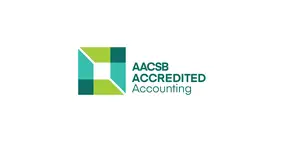
AACSB accountancy accreditation
Massey's School of Accountancy is one of only two institutions in New Zealand and Australia, and one of 12 outside the United States, to be accredited by the Association to Advance Collegiate Schools of Business (AACSB) for its undergraduate, master's and doctoral degrees.
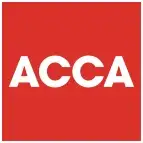
Association of Chartered Certified Accountants (ACCA)
Massey's accountancy qualifications are internationally accredited by the UK's Association of Chartered Certified Accountants (ACCA).
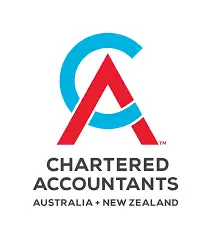
Chartered Accountants Australia and New Zealand (CA ANZ)
Massey's accountancy qualifications have accreditation from Chartered Accountants Australia and New Zealand. Representing more than 120,000 members, CA ANZ is committed to upholding ethical standards, delivering world-class member services, educating and advocating for the public good.
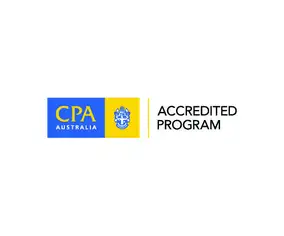
CPA Australia - Certified Practising Accountants
Accountancy at Massey University has been accredited by CPA Australia – one of the world’s largest accounting bodies.
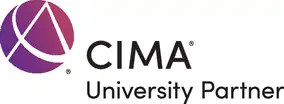
Chartered Institute of Management Accountants (CIMA)
Accountancy at Massey University is accredited by the Chartered Institute of Management Accountants (CIMA).
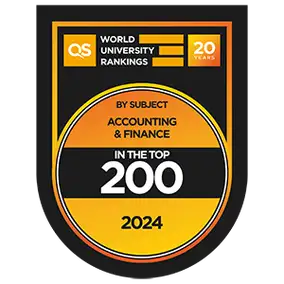
QS Ranking – Accounting and Finance
Massey is ranked by QS (Quacquarelli Symonds) as one of the top 200 universities for accounting and finance.
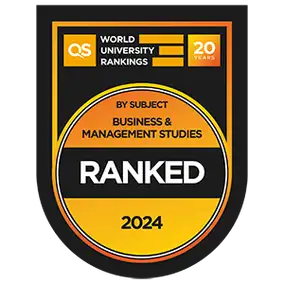
QS Ranking - Business Management Studies
Massey University is ranked by QS (Quacquarelli Symonds) as one of the top 400 universities for business and management.
Related study options
Accountancy – Bachelor of Business
Become an accountancy specialist with the skills and knowledge to succeed in the world of business.
Accountancy – Master of Business Studies
The Master of Business Studies (Accountancy) will give you the business and accountancy skills to take your career to the next level.
Accounting – Graduate Diploma in Business Studies
Keen for a career in accountancy? By studying Massey’s Graduate Diploma in Business Studies (Accounting) you can change the direction of your career.
Master of Professional Accountancy – MPAcc
Take your accountancy career to the next level. You'll gain an excellent understanding of accountancy principles and practical applications, skills that employers are looking for.
Master of Professional Accountancy (Chartered Accountant) – MPAcc(CA)
Unleash your potential and start your journey to become a Chartered Accountant. You will gain an in depth understanding of accountancy principles and practical applications, plus be one step closer to achieving full Chartered Accountant status with the integration of the CA Program.
Professional Accountancy (Chartered Accountant) – Postgraduate Diploma in Business
This qualification seamlessly integrates the CA Program, guiding you to Chartered Accountancy. Further develop your understanding of accountancy principles and practical applications, and elevate your accountancy career to new heights.
Useful planning information

Key information for students
Compare qualifications and academic information across different New Zealand institutions. Learn more on careers.govt.nz
